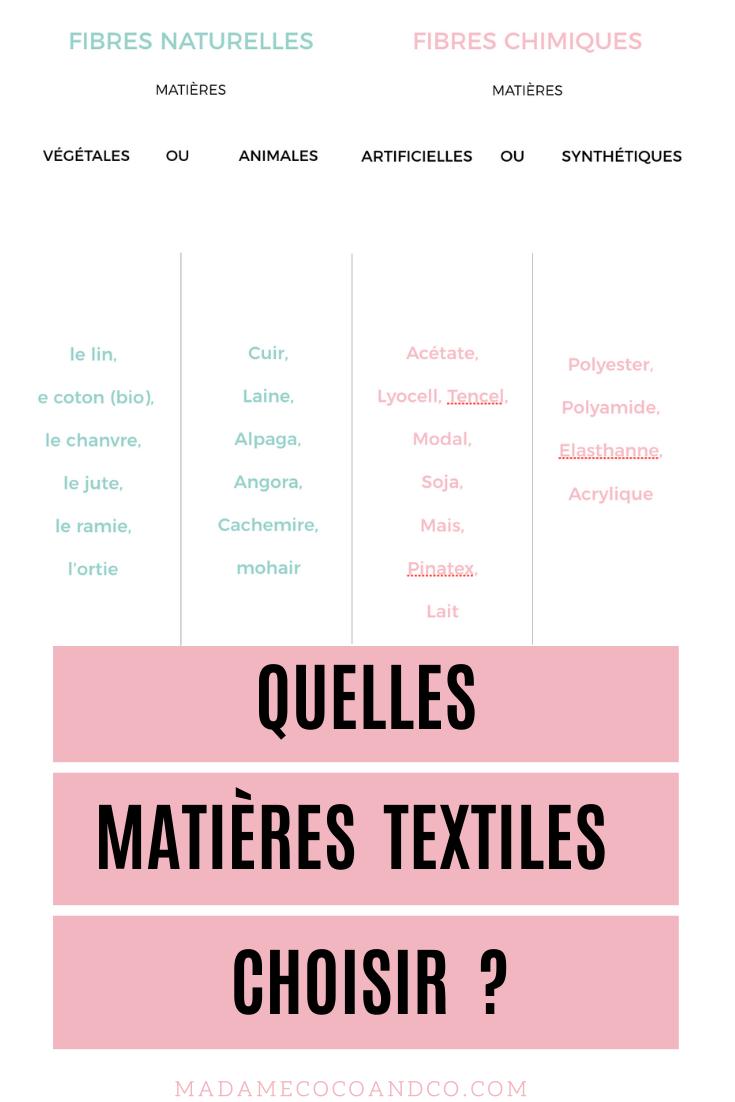How to choose the right textile materials
Difficult to sort between the different textile materials as the choice is so great. Which materials are the most breathable? The most suitable for sensitive skin? We take stock.
natural fibers
Produced from plants or of animal origin, they are recommended for people with allergies, the dyes used to dye them being generally better tolerated.
The cotton
+ Breathable, light to wear and soft to the touch. "It is a fiber well tolerated by people who suffer from allergies, eczema and psoriasis", details Dr. Jean-Luc Bourrain, dermatologist. Cotton is also more suitable for underwear if you are prone to urinary tract infections or fungal infections. As it heats up quickly on contact with the body, it is pleasant in winter for bed linen.
- It retains moisture and therefore perspiration. This runs the risk of hot and cold after a sports session and increases the risk of irritation in the areas of friction. Its fibers are difficult to dye; manufacturers outside the EU sometimes use chemicals (such as formaldehyde, an allergen and irritant) to fix bright colours. It is therefore better, if you have sensitive skin, to opt for light colors or a creamy white rather than a bright white.
The silk

+ Ideal for sensitive skin because it is very soft. Insulating, it keeps you warm in winter and cool in summer.
- It's expensive and fragile.
linen
+ "Very pleasant to wear in summer because it is light, breathable and wicks away perspiration", explains Marie Montliaud, from the Federation of Knitwear and Lingerie. Linen is an interesting material for people suffering from night sweats who can choose it for their bedding.
- It has a rustic feel that may bother sensitive skin.
Wool
+ Insulates well and keeps both warm and cool: "A fine merino wool tank top, knitted in a loose knit, helps you stay cool in summer better than a cotton tank top!", assures Marie Montliaud.
- As it tends to scratch, "it is irritating and poorly tolerated by people with sensitive skin", warns Dr. Bourrain. Cashmere and angora, which are softer, may nevertheless be suitable.
The leather
+ Keeps warm.
- Agents used for tanning, such as chromium, are responsible for allergies.
artificial fibers
They are produced from plants whose fibers are dipped in a solvent to soften them and weave them, then transformed by chemical treatments.
Viscose
+ Designed to replicate the properties of silk but at a lower cost, it is soft and well tolerated by people who suffer from eczema and psoriasis.
- It absorbs moisture.
Bamboo
+ It is slightly softer than cotton and also low allergenic.
- It absorbs moisture. Bamboo clothes are often put forward for their natural and ecological side... Wrongly! "Of course, the plant grows without pesticides and requires little water, but the fiber requires highly polluting treatments for its transformation", corrects Marie Montliaud.
soy
+ Soft, it retains heat and does not retain moisture: the garment therefore dries very quickly.
- New in the textile market. The articles that integrate it in their manufacture are still rare and a bit expensive.
Synthetic fibers
They are made from plastics from the petrochemical industry.
Polyamide (or nylon)
+ Soft, supple and shiny. Qualities that explain why it is widely used in lingerie. To the touch, it is rather cold; which is pleasant in summer, less so in winter.
- "Not very breathable, it leads to a phenomenon of maceration conducive to the proliferation of bacteria and fungi if you sweat", warns Marie Montliaud.
acrylic
+ "Good thermal insulation, it is lighter and less expensive than wool, with an identical feel", explains Marie Montliaud. Also, since it is less scratchy, it may be better suited for sensitive skin.
- It is not very breathable.
Polyester
+ "Thanks to the creation of small channels in the fiber which evacuate moisture, it has become more breathable than before", emphasizes Marie Montliaud. Which makes it a good ally for sport. It is also a good insulator that keeps you warm.
- It is made up of short fibers that can irritate sensitive skin.









